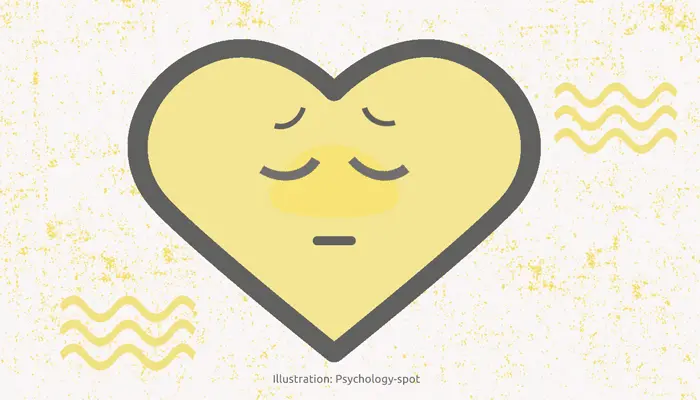
True love is not control or demand, but freedom and trust. It is not submission or slavery but inspiration and support. And yet, many times we confuse love with control and emotional dependence. We identify love with sacrifice and demand, submission and loss of freedom.
These misinterpretations distort love to the point of turning it into an emotional prison that ends up suffocating us, robs the relationship of psychological oxygen and weighs down our potential as people. Unfortunately, mature love is rare. What abounds most is possessive love. And when we fall into its net, we can become very unhappy.
“I can’t live without you”, the emblematic phrase of possessive love
Phrases like “I can’t live without you” or “I wouldn’t be happy without you” sound very romantic, but they contain a hidden emotional dependency. They reveal the idea that love is possession and, unintentionally, hold the other responsible for our happiness.
However, love and dependency are so antagonistic that when they coexist, they end up destroying the relationship. When love becomes an emotional prison, it weighs down the freedom and potential of those who experience it.
That love is usually demanding and selfish because it puts the satisfaction of one’s own needs before those of the other. It ends up being a coercive and controlling exercise that uses the other as a source to meet his/her own needs. As a result, it is often suffocating, disabling and emotionally invalidating the other.
That immature and possessive love arises from our need for interpersonal fusion. “Without love, humanity could not exist another day”, as Erich Fromm pointed out. However, this fusion can be achieved in different ways and cannot always be called true love.
Possessive love leads to a symbiotic union in which there are two independent physical bodies, but a single psyche based on a relationship of submission/domination.
The person who submits does so because wants to escape the intolerable feeling of isolation and separateness by becoming a part of the one who directs, guides and protects him/her, that other who becomes his/her life and the air he/she breathes. This type of relationship prevents him/her from having to make decisions and take risks, but it also prevents him/her from being independent and growing emotionally.
The person who dominates in the relationship also wants to escape his/her loneliness by making the other a part of himself/herself. She/he self-fulfills by engulfing the other and feels empowered when love borders on adoration. As a result, both develop a relationship of dependency and control. The longed-for fusion takes place, but without integrity or growth because both are limited to satisfying those emotional needs that they have not been able to manage independently and maturely. That love ends up being invasive and many times even toxic.
How to recognize true love?
“Immature love says: ‘I love you because I need you.’ Mature love says: ‘I need you because I love you,'” wrote Erich Fromm. The difference is subtle, but fundamental. This is how we recognize that the other is important to us, but we do not place the responsibility for our happiness on his/her shoulders because we relate to each other as two independent adults.
“In contrast to symbiotic union, mature love means union on condition of preserving one’s own integrity, one’s own individuality,” Fromm explained. That love helps us overcome the feeling of separateness, but without giving up being oneself.
In fact, true love does not demand, but is recognized by what it gives. What is giving?
Most people assume that “giving” means to “give up” something, deprive yourself, or sacrifice. As a result, those people are willing to give, but only in exchange for receiving because in the mercantile mentality of our times, giving without receiving means a scam.
On the other hand, mature love goes beyond this exchange and gives another meaning to the action of giving. The person who loves does not give in order to receive because the mere fact of giving enriches him/her in itself. In this case, the sacrifice ceases to be perceived as such and loses its meaning. Just as the demand loses meaning.
When there is mature love, both people share the joy of giving. Something new is born from that selfless act and both feel grateful for it, which ends up fueling their love and mutual commitment. As a result, “Love is a power that produces love while impotence is the inability to produce love”, as Fromm pointed out.
However, to experience that love, we first need to grow and love ourselves. Only those who feel free and sure of themselves can give themselves totally and love to the fullest without losing themselves in the other or wanting to control him/her.
Only then will each person take responsibility for what they feel, without blaming the other. Only then can they love without possessing. Give without demanding. “That is the true experience of freedom: having the most important thing in the world without owning it”, as Paulo Coelho wrote. And when you experience that, you don’t have to wonder “how to recognize true love?” because you feel and live it, without a doubt.
Source:
Fromm, E. (2007) El arte de amar. Buenos Aires: Paidós.



